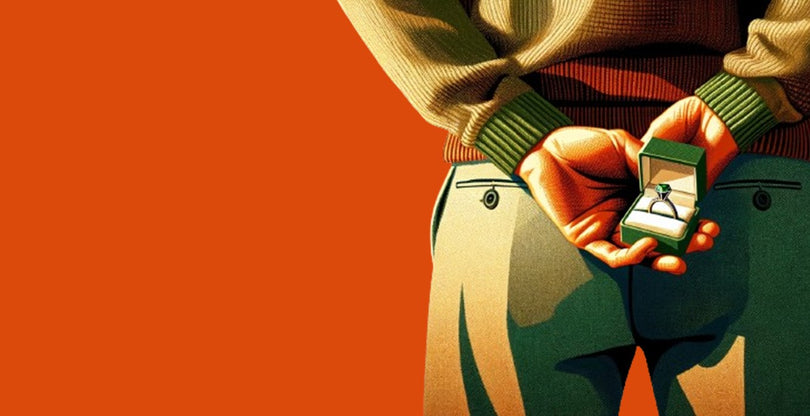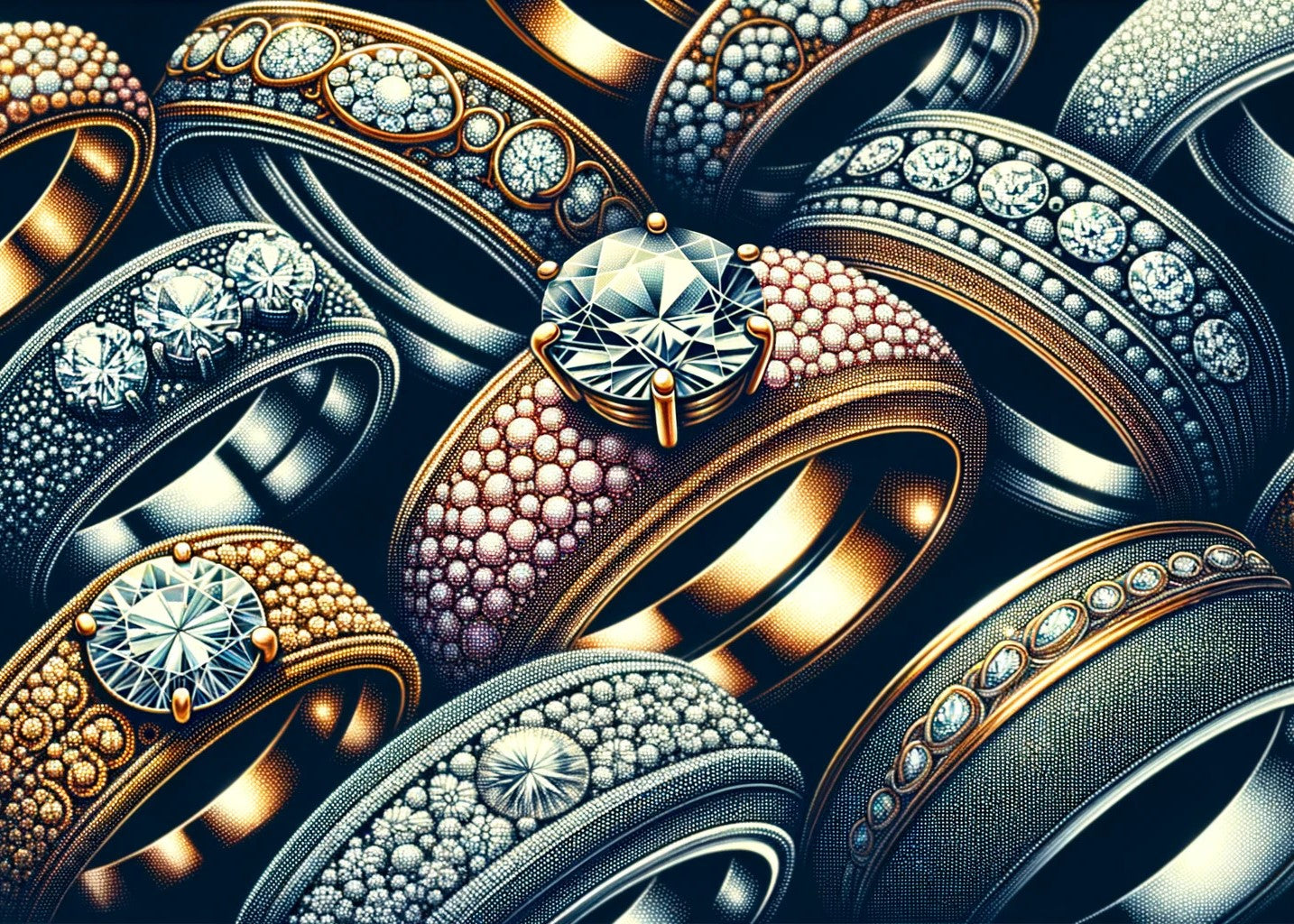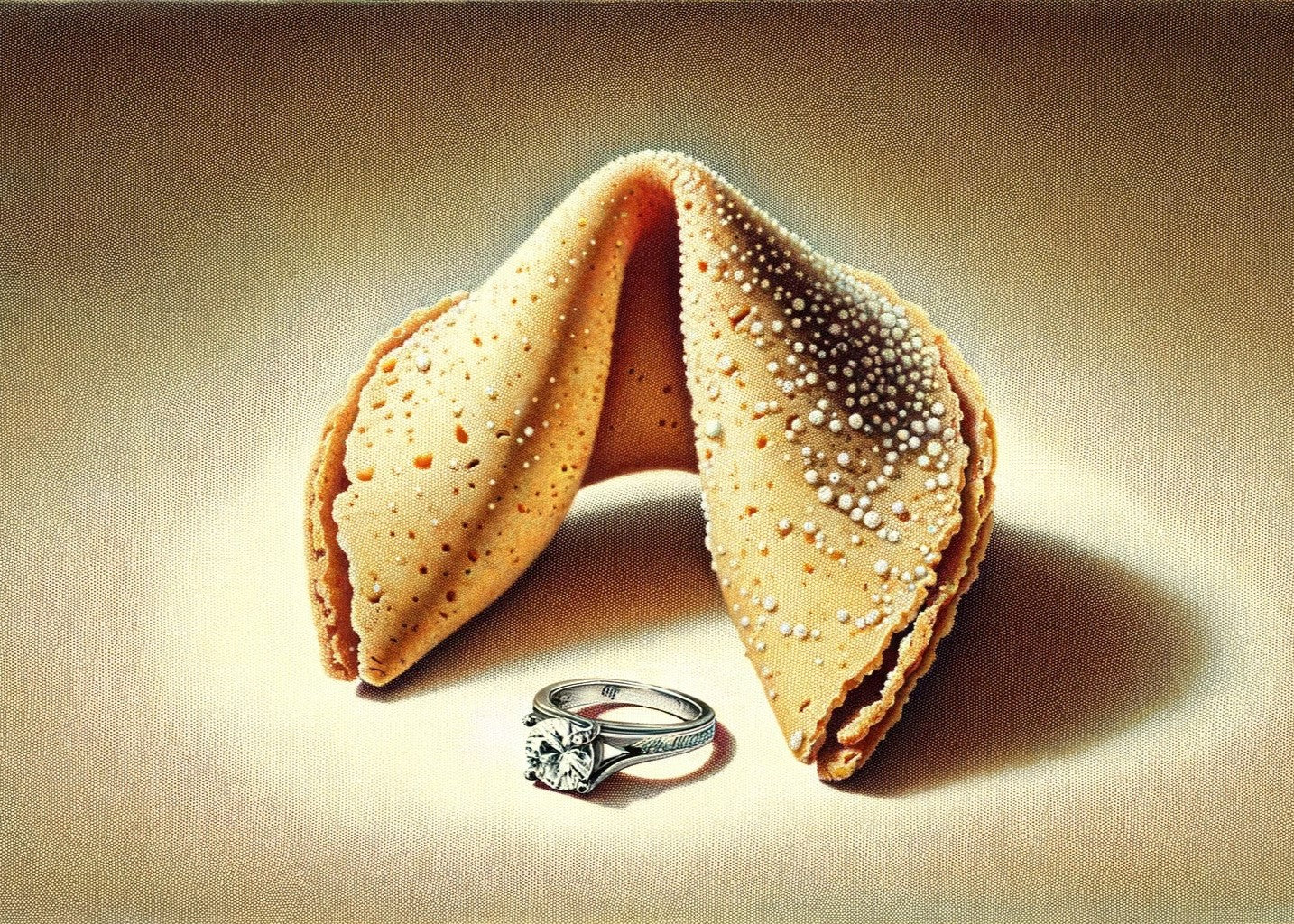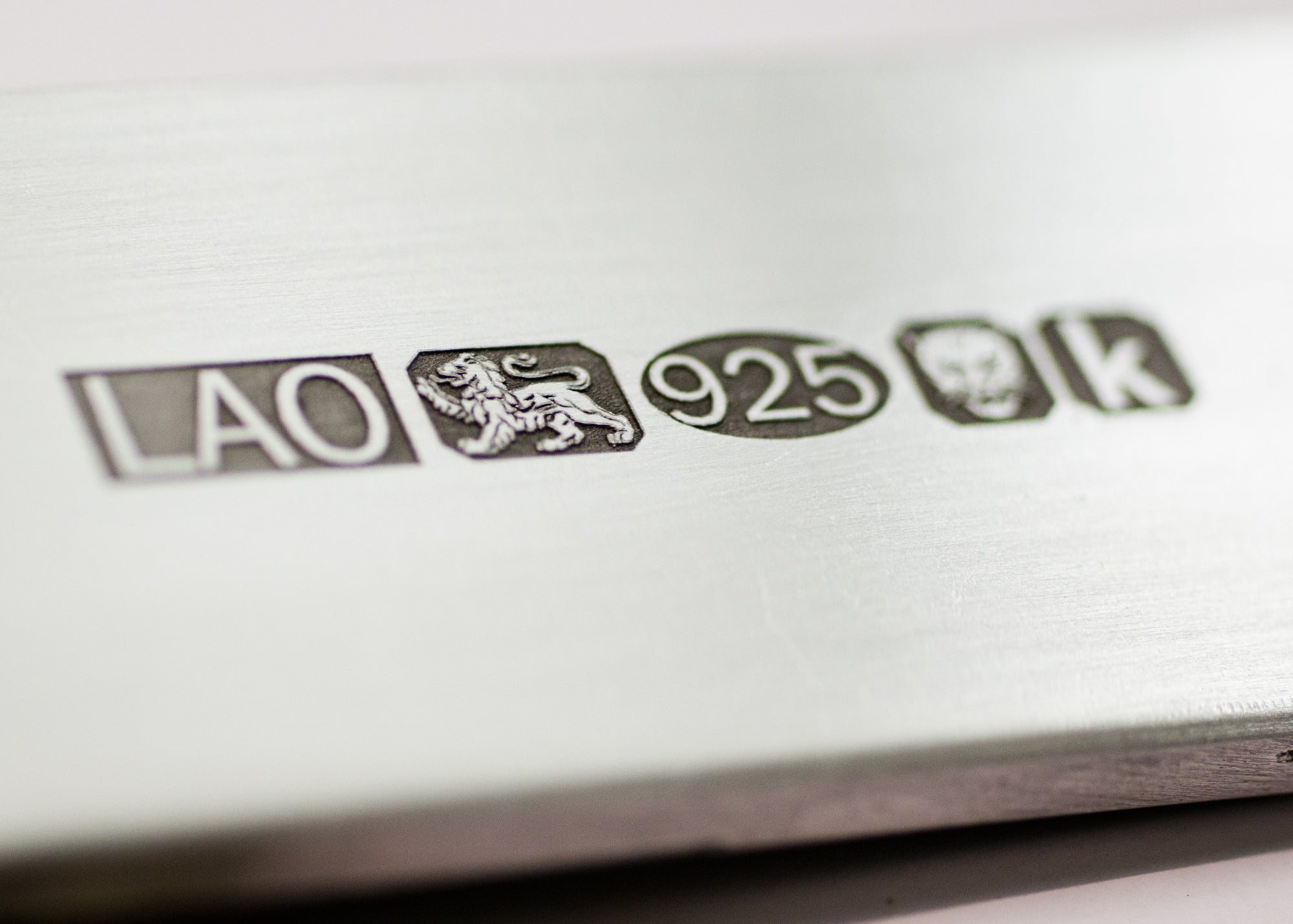Choosing the perfect metal for an engagement ring is a crucial step in crafting a symbol of love and commitment that reflects personal style and withstands the test of time.
From the timeless allure of gold to the unmatched durability of platinum, and the modern appeal of alternative metals like titanium and tungsten, the options are as diverse as they are beautiful.
Each metal brings its own set of characteristics, benefits, and considerations, making it important to weigh factors like durability, maintenance, and budget. In this guide, we'll delve into the pros and cons of popular metals used in engagement rings, helping you make an informed decision that aligns with your values and lifestyle.
Whether you're drawn to the traditional elegance of gold or the resilient beauty of newer metals, finding the right metal for your engagement ring is a journey worth taking.
Gold
Gold is the classic choice when it comes to engagement rings, offering that timeless glow and warmth that many people dream of. Whether you go for the pure, rich yellow of 24k, which is more traditional but softer and not as practical for daily wear, or opt for something a bit more durable like 14k or 18k, gold has that perfect balance of beauty and functionality.
It's versatile too, with options like rose gold for a modern twist or white gold if you prefer something a bit cooler in tone. Plus, it's resizable, so you don't have to worry too much about getting the perfect fit from the start.
But, gold isn't without its quirks. The purer it is, the softer and more susceptible to scratches it becomes, which means those 24k bands might need a bit more babying than their less pure counterparts. And while gold is definitely more affordable than platinum, it can still put a dent in your wallet, especially if you're eyeing a higher karat.
So, if you're all about that golden glow but need something that can stand up to the rigours of everyday life, you might want to consider a lower karat or a gold alloy that mixes in a bit of durability without sacrificing too much of that classic gold charm.
Platinum
Platinum is the go-to for anyone looking to make their engagement ring truly special. It's not just another metal; it's rare, feels luxurious, and has this cool, heavy vibe that makes your ring feel like a real treasure.
Plus, it's super tough, which means it can handle the daily wear and tear without losing its charm. The catch? It's pricey. But if you're all about that once-in-a-lifetime kind of ring, it might just be worth the splurge.
Now, there's a bit of a downside. While platinum is known for its strength, it's not totally scratch-proof. Over time, it gets this patina, kind of like a badge of honour showing it's been through life with you. Some people love that look, but if you're not into the antique vibe, you might need to give it a polish now and then. Also, it's heavier than gold, so it might take a bit to get used to. But that weightiness? That's how you know it's the real deal.
Palladium
Palladium rings are like the cool, slightly more laid-back cousin of platinum ones. They've got a lot of the same perks - super durable, don't need that extra rhodium plating like white gold does, and they're less expensive than platinum.
So, if you're after that high-quality feel without breaking the bank, palladium might just be your go-to. It's like getting the premium experience with a bit of a discount.
But, it's not all sunshine and rainbows. While palladium is awesome for being low-maintenance and wallet-friendly, it's not as widely recognised as platinum. So, if you're someone who's all about the prestige and the name, this might feel like a step down.
Plus, since it's a bit lighter, it doesn't have that hefty, luxurious feel that some people love about platinum rings. It's all about what's important to you in the end.
Sterling Silver
Sterling silver has a certain old-school charm that's hard to beat. It's like taking a page out of history, given that it was once more prized than gold! This metal offers a touch of luxury without making your wallet weep, making it a fantastic pick for those who love a good deal but still want that sparkle.
Plus, its white, moon-like glow adds a touch of romance to any engagement ring. But, fair warning, sterling silver is a bit of a diva when it comes to care. It's tougher than pure silver, sure, but it still doesn't love rough handling and tends to show wear and tear with scratches and tarnish.
Now, for the nitty-gritty: if you're not into regular maintenance, sterling silver might test your patience. This metal needs a bit of TLC to keep its shine, including regular polishing and a cool, dry storage spot.
It's kind of like having a pet that needs grooming; it's all worth it for the love and beauty it brings, but you've got to commit to the upkeep. So, if you're going for that sterling silver ring, be prepared for some extra care to keep it looking as stunning as the day you slipped it on.
Titanium
Titanium is like the superhero of metals when it comes to engagement rings. Originally used in industrial settings, this metal has found its way into the jewellery world, bringing its incredible strength and feather-light feel along for the ride.
It's perfect for anyone who isn't into the whole heavy-jewellery thing but still wants a piece that screams durability and modern style.
The best part? It's a low-maintenance champ. You won't have to fuss over it with constant care or worry about scratches; it stays looking great with minimal effort.
But, every hero has its kryptonite. For titanium, it's the resizing issue. Once you've got your titanium ring, that's pretty much the size you're stuck with, so you better make sure it fits just right from the get-go.
It's a bit of a gamble, but if you're all in for a ring that's as tough as it is sleek, and you're confident about your size, titanium could be your perfect match.
Tungsten
Tungsten rings are like the tough guys of the jewellery world. They're incredibly durable, making them a solid choice if you're looking for something that can withstand pretty much anything life throws at it.
The fact that tungsten is four times stronger than titanium and doesn't scratch easily means your ring will keep looking as good as new for ages. Plus, it's budget-friendly, which is great if you're trying to keep costs down. And since it doesn't tarnish, you won't have to worry about it losing its luster over time.
But, there's a catch. Despite its toughness, tungsten is actually kind of brittle. So, if it takes a bad hit or falls on a hard surface, it could end up cracking or fracturing, which is definitely not ideal.
Another thing to keep in mind is that resizing these rings is a no-go. Once you've got your size, that's what you're stuck with, so you'll need to make sure you get it right the first time.
In a nutshell, tungsten rings are awesome for their durability and low maintenance, but you've got to be careful with them and choose the right size from the start.
A Quick Summary
| Metal Type | Purity/Parts | Best Features | Worst Features | Good Alternative | Resizable |
|---|---|---|---|---|---|
| Platinum | 95% | Durable, heavy, luxurious, scratch-resistant with patina | Expensive, can be heavy | White Gold, Palladium | Yes |
| Palladium | N/A | Durable, affordable, low-maintenance | Less prestigious, lighter than platinum | Platinum, White Gold | No |
| Sterling Silver | 92.5% Silver | Affordable, historical value, luxe look | Softer metal, tarnishes, requires regular polishing | Platinum, White Gold | Yes |
| Titanium | 99% Titanium | Strong, lightweight, scratch-resistant, low-maintenance | Cannot be resized, lighter feel | Stainless Steel, Tungsten | No |
| Tungsten | N/A | Extremely durable, scratch-resistant, low price | Brittle, can fracture, cannot be resized | Titanium, Stainless Steel | No |
| Gold | 24k, 18k, 14k | Timeless, resizable, versatile in color | Softer, especially in higher karats, can scratch | Palladium, Platinum | Yes |
General Care For All Metals
Taking care of the metal on your engagement ring is key to ensuring it stays looking beautiful for years to come.
Here are some handy tips:
For starters, if you notice any buildup on your ring, a simple overnight soak in a mixture of white vinegar or water with a bit of dish soap can do wonders.
After soaking, use a soft baby toothbrush to gently scrub both the top and underneath the band, getting rid of any lingering grime.
To keep the metal from looking dull, investing in a good quality jewellery polishing cloth is a smart move.
It's also important to be mindful of when to take your ring off. Before diving into a pool, dealing with harsh chemicals, or engaging in physical activities like working out or gardening, it's best to remove your ring to avoid potential damage.
If your ring features delicate pavé stones, you'll want to be even more cautious to prevent any stones from loosening.
And finally, no matter what metal your ring is made of, giving it an annual checkup with a jeweller can help catch any issues early and keep it in tip-top shape.
FAQ's
Should engagement rings be silver or gold?
While both silver and gold have their charms, gold is often preferred for engagement rings due to its timeless appeal, versatility in colour (yellow, white, and rose), and durability, especially in lower karats like 14k or 18k, which are more resistant to wear and tear. Sterling silver, though more affordable and with historical value, is softer and requires more maintenance due to tarnishing.
What is the most expensive metal for engagement rings?
Platinum is generally the most expensive metal for engagement rings due to its rarity, durability, and the luxurious, heavy feel it offers. Its resistance to scratches and the unique patina it develops over time also contribute to its high value and desirability for high-end jewellery.
What should an engagement ring be made of?
An engagement ring should be made of a material that suits your lifestyle, budget, and aesthetic preferences. Platinum and gold (in various karats and colours) are traditional choices for their beauty and longevity. Alternative metals like palladium, titanium, and tungsten offer modern looks and specific advantages like affordability and scratch resistance, making the choice highly personal.
What is the most scratch-resistant metal in a ring?
Tungsten is considered the most scratch-resistant metal used in rings, making it an excellent choice for those who prioritise durability. Its hardness ensures that it remains free from scratches and wear, maintaining its finish and appearance over time.
What is the best metal for everyday wear rings?
For everyday wear, platinum and high-karat gold (like 14k or 18k) are excellent choices due to their durability and the ability to withstand daily activities. Platinum is particularly notable for its strength and minimal maintenance, while gold offers a classic look with relatively easy resizing options.
What ring metal lasts the longest?
Platinum is often considered the metal that lasts the longest for rings due to its exceptional durability and resistance to wear. Its density and natural white luster allow it to withstand daily wear and tear while maintaining its appearance over time, making it a preferred choice for heirloom-quality engagement rings.










